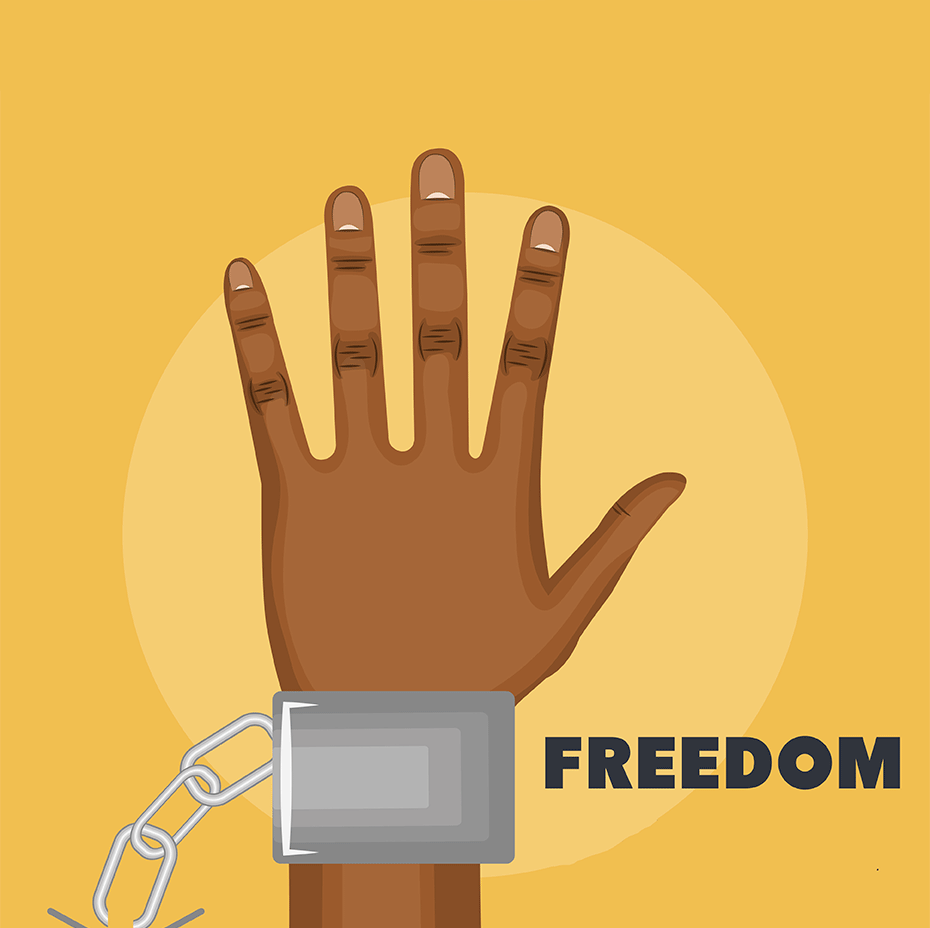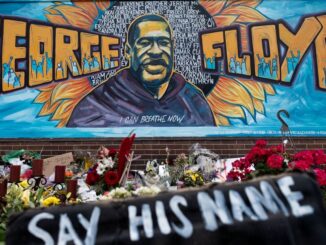
By Tiffany D. Hightower
On the heels of Juneteenth becoming federally recognized as a national holiday, Black people were left having to explain the gravity of the moment. In essence Juneteenth is the embodiment of the realization that freedom had arrived for all our enslaved ancestors in America in 1865. One hundred and nine years after the “Land of the Free”, declared “We hold these truths to be self-evident, that all men are created equal…” and two years after Lincoln proclaimed; “that all persons held as slaves are, and henceforward shall be free.”
Equal and Free…Equality and Freedom? Equality is defined in one space as “the state of being equal, especially in status, rights, and opportunities.” In mathematics, it is stated to be “a symbolic expression of the fact that two quantities are equal;”. Freedom is then expressed as “the power or right to act, speak, or think as one wants without hindrance or restraint.” In another place Freedom is described, “as the state of not being subject to or affected by (a particular undesirable thing).” It is the secondary definitions of both equality and freedom that resound as the most intriguing for the purposes of this dialogue.
Symbolic and a particular undesirable thing? It is time that we begin to dissect the symbolism of the actions we take to purport that we are not a part of that particular undesirable thing. Certainly, a round of applause should be given to every hard-fought fight to ensure that there was a true understanding of what Juneteenth means to descendants of the enslaved, but in the same breath is does not present the absence of being subject to that particular undesirable thing, which is systemic racism.
Because amid celebrating it should be a misnomer to have to defend the plausibility of critical race theory being taught at schools, which sits as the hypothesis of why a Juneteenth must exist. Under that same burdensome recognition, it is quite apparent that we have become a society where forgiveness must equate forgetfulness, and that is not a trajectory that drives inclusion, equity, nor a population that embodies the core principles of “unalienable rights.”
Concurrently, we must establish a position where going through the motions for posturing is no longer a standard practice, everything has to be fortified with sustenance and action. After a painstaking year, where a nation witnessed the 9 minutes and 29 seconds public murder of George Floyd. Numerous companies came to the forefront stating that they had resources to enforce that Black lives matter. However, Black Enterprise reports that of the $65 billion pledged to this effort only $500 million has been allocated per economist William Michael Cunningham (June 2021). We can no longer afford for this to be the staple in these perilous seasons where promises are not followed through with swift and resolute deeds. Therefore, we must be hypervigilant regarding the importance of corporate social responsibility (CSR) in ceremonious times.

Corporations possess the strategic agility and financial aptitude to best promote equity and parity in this imbalanced economic ecosystem where it pertains to building fair and just communities. They are positioned to help reconcile the notion of yet another latent promise of “40 acres and a mule”. We know that freedom is steeped in the ability to have access. Access for Black people, Black small businesses, for-profits/nonprofits, and communities is definitely affected by the particular undesirable thing, of lack of access. Accountability in equity is the duty of every citizen that ever-pledged allegiance and citizens are the backbone of corporations. Corporate Social Responsibility is the avenue to help build capacity in areas that people have long forgotten. CSR can provide the critical assets that can restore and revitalize communities that have been devastated under the foot of systemic racism and overt oppression. CSR can be the driver of sustainability after the ceremony. But CSR must operate from an attitude where words do not become rhetoric or broken jargon upon the backs and hearts of the already marginalized and disenfranchised.
It will be the authenticity of corporate social responsibility that will serve as an imperative factor in bringing about the change that we all hope to see in this world. While CSR is not the answer in totality, it remains one of the most formidable solutions. The three informal pillars of CSR are people, planet, and profits. Which translates in my humble opinion that investing in the people is good for the planet and certainly will not hurt your profits. As Tony Blair said, “The emphasis placed by more and more companies on corporate social responsibility, symbolizes the recognition that prosperity is best achieved in an inclusive society.” But as the elders would say, “Baby, you got to walk the talk!” for any of this to be a present-day reality.







